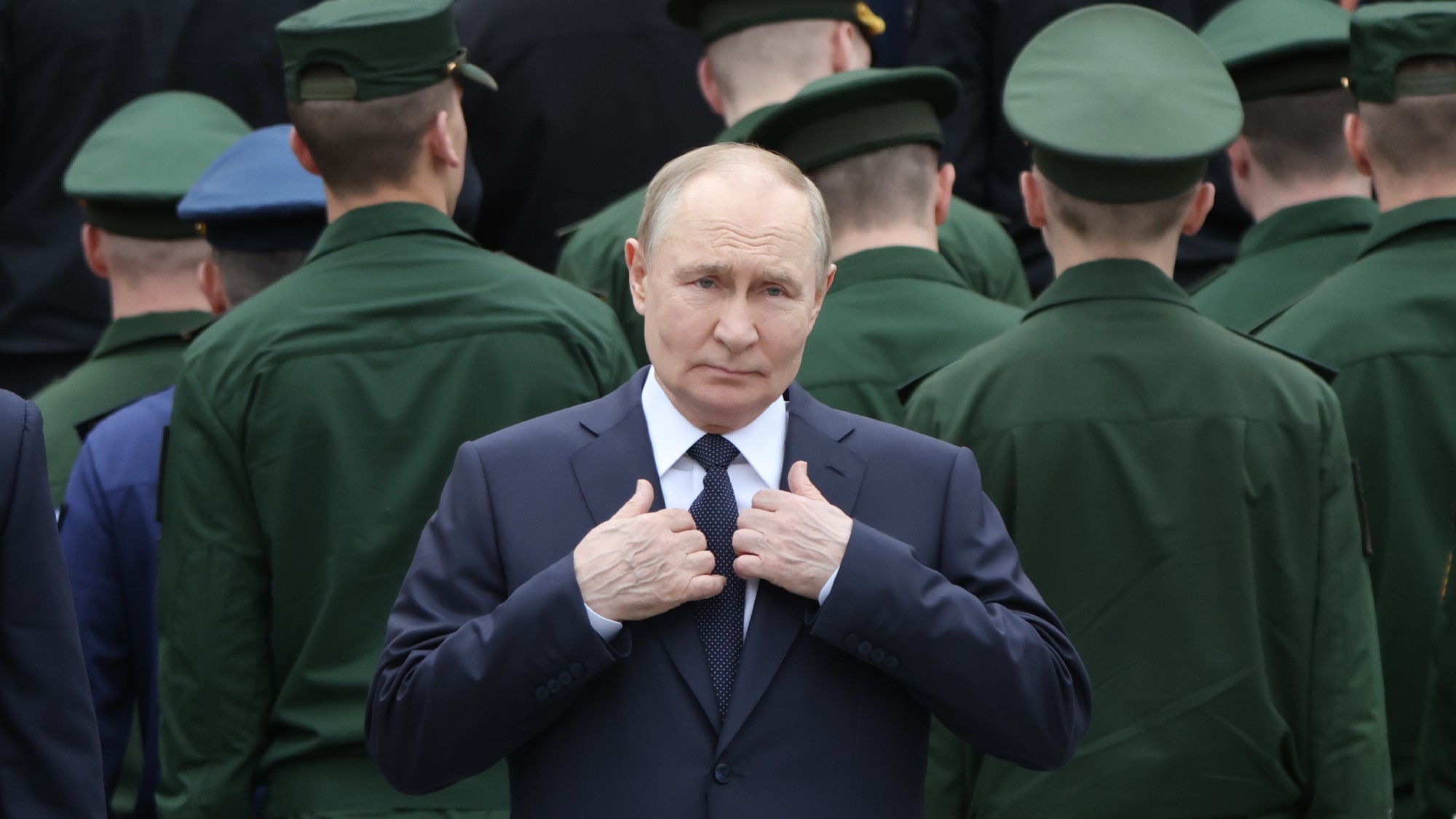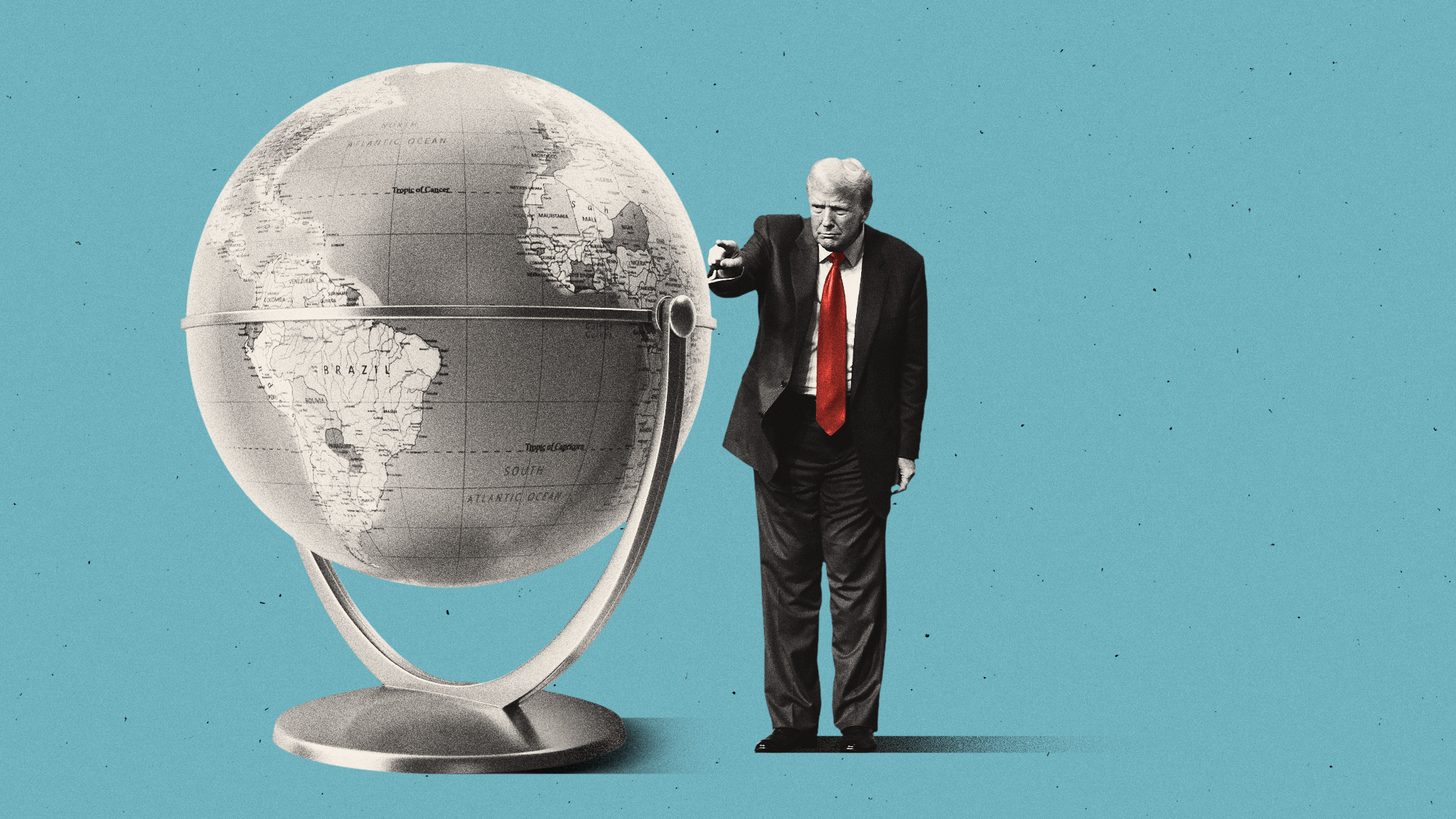How far would Russia go for Iran?
US air strikes on Islamic Republic represent an 'embarrassment, provocation and opportunity' for Vladimir Putin

A free daily email with the biggest news stories of the day – and the best features from TheWeek.com
You are now subscribed
Your newsletter sign-up was successful
Iran's Foreign Minister Abbas Araghchi has arrived in Moscow, hoping to secure a tangible show of support from one of his country's most important international allies.
As Vladimir Putin weighs up how to respond to escalating tensions in the Middle East, the answer will come down to "what is stronger", said Euronews: "the desire to make money on expensive oil and divert the world's attention from Moscow’s war on Ukraine or the fear of losing the ties and contracts built up over the years in the region".
What did the commentators say?
"On the surface, at least, Moscow is fuming" on Tehran's behalf, said Sky News. Russia's foreign ministry has said it "strongly condemns" US air strikes on Iran's nuclear infrastructure, with former president Dmitry Medvedev accusing Donald Trump of starting "a new war" in the region.
The Week
Escape your echo chamber. Get the facts behind the news, plus analysis from multiple perspectives.

Sign up for The Week's Free Newsletters
From our morning news briefing to a weekly Good News Newsletter, get the best of The Week delivered directly to your inbox.
From our morning news briefing to a weekly Good News Newsletter, get the best of The Week delivered directly to your inbox.
But this response still "feels more show than substance and if things don't escalate further" it's doubtful the Kremlin's indignation will prove "anything more than rhetoric".
While Iran has backed Russia with weapons for its war in Ukraine, "there might be very little Moscow can or will do to reciprocate", said CNBC. Aside from needing to keep military resources back for its own operations, Russia has to "tread a fine line between placating and assisting ally Iran and keeping the US sweet, as it looks to re-establish ties" with the Trump administration.
Putin's aim may be "to play peacemaker, and to turn the situation to his advantage", said Sky News. His immediate task will be to persuade Araghchi to "limit Iran's response to a symbolic one, and to then return to the negotiating table with America". Trump would then be "in his debt" and "the obvious place he'd want that repaid is Ukraine, in the form of withdrawing US support".
What next?
The collapse of the Iranian regime would rob Russia of yet another important ally and foothold in the Middle East, following the fall of the Assad regime in Syria. This would cost the Kremlin influence, as well as lucrative investments and infrastructure projects.
A free daily email with the biggest news stories of the day – and the best features from TheWeek.com
Putin will also be acutely aware of the symbolism – and potential precedent – of successful Western-backed regime change and removal of a long-standing authoritarian leader. But "things are not quite as bad for Moscow as they may seem", said CNN.
A protracted war in the Middle East would distract international attention – and resources – away from Ukraine, and is likely to lead to a surge in oil prices, which would benefit the Russian economy and war machine. The Israel-Iran conflict is also "opening up the taps, as it were, to diplomatic opportunities for a Kremlin that has faced years of international isolation".
The "honest answer", said Mark Galeotti in The Spectator, is that the US decision to attack Iran is an "embarrassment", a "provocation" and an "opportunity" for Russia – "but likely more of an opportunity than anything else, if Moscow is willing to play it cool".
Elliott Goat is a freelance writer at The Week Digital. A winner of The Independent's Wyn Harness Award, he has been a journalist for over a decade with a focus on human rights, disinformation and elections. He is co-founder and director of Brussels-based investigative NGO Unhack Democracy, which works to support electoral integrity across Europe. A Winston Churchill Memorial Trust Fellow focusing on unions and the Future of Work, Elliott is a founding member of the RSA's Good Work Guild and a contributor to the International State Crime Initiative, an interdisciplinary forum for research, reportage and training on state violence and corruption.
-
 What is the endgame in the DHS shutdown?
What is the endgame in the DHS shutdown?Today’s Big Question Democrats want to rein in ICE’s immigration crackdown
-
 ‘Poor time management isn’t just an inconvenience’
‘Poor time management isn’t just an inconvenience’Instant Opinion Opinion, comment and editorials of the day
-
 Bad Bunny’s Super Bowl: A win for unity
Bad Bunny’s Super Bowl: A win for unityFeature The global superstar's halftime show was a celebration for everyone to enjoy
-
 Munich Security Conference: a showdown between Europe and Trump?
Munich Security Conference: a showdown between Europe and Trump?Today’s Big Question Report suggests European leaders believe they can no longer rely on the US for military support – but decoupling is easier said than done
-
 What is ‘Arctic Sentry’ and will it deter Russia and China?
What is ‘Arctic Sentry’ and will it deter Russia and China?Today’s Big Question Nato considers joint operation and intelligence sharing in Arctic region, in face of Trump’s threats to seize Greenland for ‘protection’
-
 New START: the final US-Russia nuclear treaty about to expire
New START: the final US-Russia nuclear treaty about to expireThe Explainer The last agreement between Washington and Moscow expires within weeks
-
 What would a UK deployment to Ukraine look like?
What would a UK deployment to Ukraine look like?Today's Big Question Security agreement commits British and French forces in event of ceasefire
-
 Would Europe defend Greenland from US aggression?
Would Europe defend Greenland from US aggression?Today’s Big Question ‘Mildness’ of EU pushback against Trump provocation ‘illustrates the bind Europe finds itself in’
-
 Greenland, Colombia, Cuba: where is Donald Trump eyeing up next?
Greenland, Colombia, Cuba: where is Donald Trump eyeing up next?Today's Big Question Ousting Venezuela’s leader could embolden the US administration to exert its dominance elsewhere
-
 Did Trump just end the US-Europe alliance?
Did Trump just end the US-Europe alliance?Today's Big Question New US national security policy drops ‘grenade’ on Europe and should serve as ‘the mother of all wake-up calls’
-
 Is conscription the answer to Europe’s security woes?
Is conscription the answer to Europe’s security woes?Today's Big Question How best to boost troop numbers to deal with Russian threat is ‘prompting fierce and soul-searching debates’